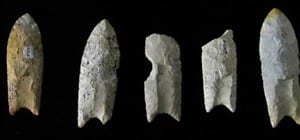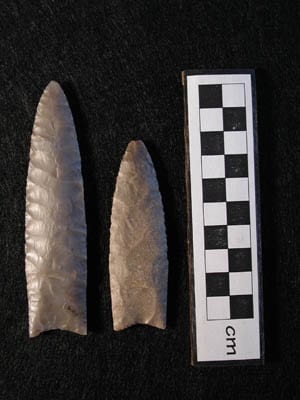“An extraterrestrial impact is an unnecessary solution for an archaeological problem that does not exist.”
USA Today has written about the research of SMU archaeologist David Meltzer that challenges the controversial theory that an ancient comet devastated the Clovis people, one of the earliest known cultures in North America.
Writing online in USA Today’s Science Fair section, journalist Elizabeth Weise notes in her article “Researchers — Clovis people didn’t disappear because of comet” that Meltzer demonstrates in a recent study that there is nothing in the archaeological record to suggest an abrupt collapse of Clovis populations.
The study was published in the October issue of Current Anthropology, Meltzer and archaeologist Vance Holliday from the University of Arizona argue that there is nothing in the archaeological record to suggest an abrupt collapse of Clovis populations.
“Whether or not the proposed extraterrestrial impact occurred is a matter for empirical testing in the geological record,” the researchers write. “In so far as concerns the archaeological record, an extraterrestrial impact is an unnecessary solution for an archaeological problem that does not exist.”
EXCERPT:
What caused the Clovis people of North America to disappear? A 2006 book suggested a massive comet strike over the Great Lakes 12,900 years ago cooled the climate, killing off mammoths and dispersing the people and their ancient culture. But a paper in the October issue of Current Anthropology disputes this theory, saying the evidence presented for it is easily explained away.
The Clovis people are known for their characteristic spear points, which vanished from the archaeological record close to 13,000 years ago. Those in favor of the comet theory say few of the Clovis sites show evidence of people living in them after the Clovis left, and that there are sediment layers empty of human habitation between the occupations.
But archaeologists Vance Holliday of the University of Arizona and David Meltzer of Southern Methodist University argue that people in those hunter gatherer cultures routinely moved around.

